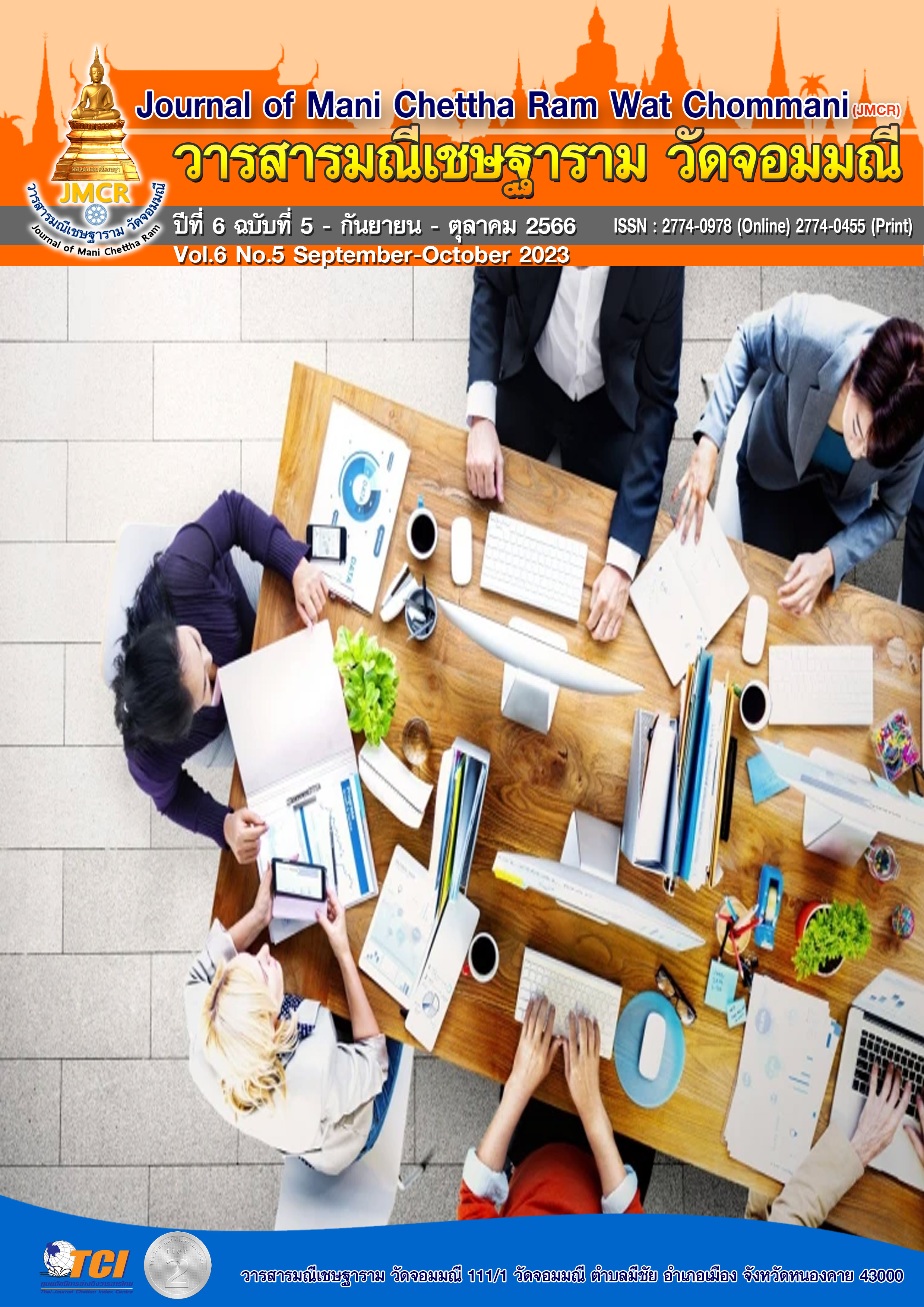MORAL AND ETHICAL DEVELOPMENT FOR ORGANIZATIONAL EXECUTIVES
Keywords:
Keywords: the development of moral ethics; moral ethics for executives; Organizational Management DevelopmentAbstract
This academic article has studied the principles of Buddhism that are found to be helpful or beneficial in developing the morality and ethics of corporate executives. The principles are the Papanikadhamma
3, Kalyanamitthamma 3, Sappurisadhamma 7, and Brahmavihara 4.Organizational executives, if they have these principles He is a person who has the potential to create and maintain society. It is considered to have developed oneself that expresses or treats others correctly and has an effect on the success of the organization. From studying documents related concepts found at present, there is rapid progress in knowledge and information. Mostly due to science. Computer and technology this makes society dynamic and rapidly changing all the time. Resulting in small and large problems. To live in society happily and create society, one must be a person of learning and have appropriate life skills. When you have the right skills there are various organizations. To serve needs or solve problems that arise those who plan, direct, and evaluate plans. It is said that corporate executives are very important in terms of management that is, planning work. Implementation of the plan and evaluation. There are differences according to the condition of each executive. But what will show the desired executive status according to the Dhamma principles that can be applied to achieve results? It is not only about creating stability with the power base or position and status, but there must also be the essence of the principles which demonstrate the condition of the administrators. Which must be a person who is intelligent, knowledgeable, and has a purpose in doing various activities. For the benefit of the public and the organization
References
นิสนัย พลธรรม. (2561). จริยธรรมกับการพัฒนาองค์กร: Ethics And Organizational Development. Journal of Modern Learning Development, 3(1).
ราเชนทร์ พิพัฒนกุล. จริยธรรมกับการบริหารงาน: Ethics and Management.วารสารปรัชญาปริทรรศน์ Journal of Philosophical Vision, 24(2).
เอกราช โฆษิตพิมานเวช. (2560). รูปแบบการบริหารโรงเรียนเอกชนที่มีประสิทธิผล สังกัดสำนักงานเขตพื้นที่การศึกษาประถมศึกษาขอนแก่น เขต 1. ใน วิทยานิพนธ์หลักสูตรปรัชญาดุษฎีบัณฑิต สาขาวิชาการบริหารการศึกษา. มหาวิทยาลัยภาคตะวันออกเฉียงเหนือ.
Chayawatana, K. (2011). People and Work Management by the Buddha's Method. fine print printing.
Glunprasert, S. (2010). Leadership in management. By applying the principle of Sappurisadhamma 7 : a case study of True Corporation Public Company Limited. Master's thesis Master of Buddhism. Mahachulalongkornrajavidyalaya University.
Mahachulalongkornrajavidyalaya University.. (1996). Thai Tripitaka Mahachulalongkornrajavidyalaya edition. Ayutthaya: Mahachulalongkornrajavidyalaya University.
Phanthumnawin, D. (1981). Ethical Psychology and Language Psychology. Thai Wattana Panich.
Phra Dharmma kosajarn (Prayoon Dhammachitto. (2006). Buddhist methods of administration. Ayutthaya: Mahachulalongkornrajavidyalaya University.
Phra Dharmma Pitaka (Prayut Payutto). (2001). Leader. (6th ed.). Matichon Printing House.
Phrakru Wisut Thirakhun (Thira Jittawisutthi). (2011). Human Resource Development According to the Three Sikkha Principles of Buddhist Schools. in Kamphaeng Saen District Nakhon Pathom Province. Master's thesis Master of Buddhism. Mahachulalongkornrajavidyalaya University.
Phra Rajavaramuni (Prayut Payutto). (1987). Buddha's teaching techniques. Amarin Printing Group.
Phra Rajavaramuni (Prayut Payutto). (2000). Buddhist dictionary Dharma edition. (9th ed.). Mahachulalongkornrajavidyalaya University.
Sihamampai, P. (2000). The basics of religious and ethical education. Chulalongkorn University.
Thongyoi, O., Phra Maha Suphot Sumetho, & Somkhaoyai, T. (2017). Dharma-based leadership of school administrators affecting the performance quality of teachers in educational opportunity expansion schools. Under the Office of Nakhon Si Thammarat Primary Education Service Area 4. Journal of Buddhist Social Sciences and Anthropology, 2(2), 29.




